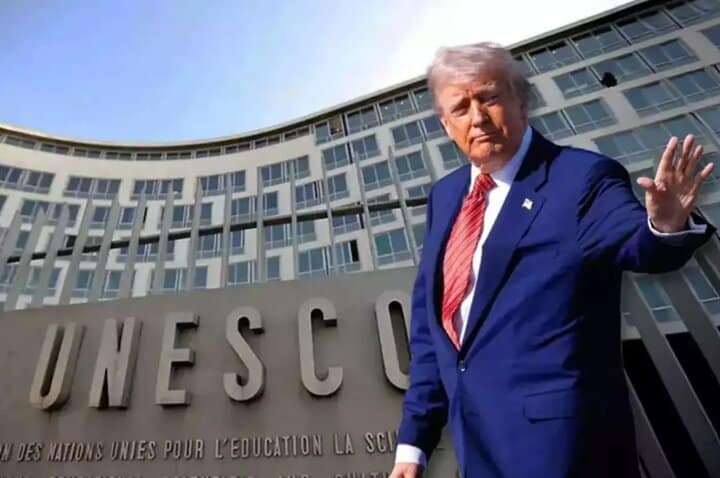US withdraws from UNESCO during the Gaza famine.
A few days ago, the United States officially announced that it had withdrawn from UNESCO, the United Nations cultural and educational organization; this is the third time that the United States has left such an institution in disregard of international obligations.
From the perspective of observers, this decision is not a temporary measure but part of Washington’s long-standing policy of neutralizing global institutions that it itself played a central role in their formation. However, whenever these organizations act against the political interests or agendas of its strategic ally, the occupying Zionist regime, the United States quickly takes the path of denial, threat, or withdrawal.
In justifying this withdrawal, the United States has accused UNESCO of “anti-Israel bias,” “Chinese influence,” and “spreading extremist cultural values.” The reality, however, is that UNESCO, by emphasizing cultural justice, protecting the heritage of the occupied people, and defending the historical rights of the Palestinians, has repeatedly prevented cultural appropriation and falsification of history by the Zionist regime, and this issue has angered the White House. Thus, the US withdrawal once again showed that wherever the rights of oppressed nations are at stake, the interests of Tel Aviv and its supporting lobbies take precedence over all of America’s international principles and commitments.
This action was met with widespread reactions. The Zionist regime, as usual, welcomed the withdrawal and called it a “moral victory.” However, international institutions, governments, and independent experts have seen this decision as a sign of America’s moral isolation. UNESCO, while expressing regret, emphasized the continuation of its mission in defending culture, education, peace, and world heritage. What became most evident was not simply the withdrawal of a country, but the organized effort of hegemonic actors to discredit institutions that still reflect the voices of the oppressed.
From the Human Rights Council to UNESCO: The Cost of Escaping Global Commitments
This is not the first time that the United States, faced with international structures that do not guarantee its exclusive interests, has decided to leave them. In 2018, the Trump administration withdrew from the UN Human Rights Council, claiming that the council had a “biased” approach against the Israeli regime; a council that, despite its implementation weaknesses, was one of the few institutions that documented and condemned the repeated violations of Palestinian rights by the occupying regime.
Also in 2020, the United States left the World Health Organization (WHO) on the pretext of its ineffective management of the COVID-19 crisis; a decision that not only provoked a sharp reaction from health experts but also weakened Washington’s position as a global leader in the field of public health.
The withdrawal from the Paris climate agreement was another example of the denial of global commitments in the fields of survival and the environment. Now, the withdrawal from UNESCO is a continuation of the same trajectory; The trajectory of the destruction of multilateral mechanisms that represent global concerns rather than the political interests of the United States and its allies.
Economically, the US withdrawal from UNESCO means the loss of direct influence over the distribution of the organization’s budgets, projects, and implementation priorities. In the past, US financial assistance to UNESCO constituted a significant share (about 22 percent) of the organization’s total budget. With the cessation of this assistance, not only has US influence in determining UNESCO’s directions decreased, but this vacuum has been filled in favor of countries such as China and Russia, which now have a greater share in setting global educational, cultural, and digital standards. Such a trend will weaken the commercial, scientific, and cultural position of American institutions in the long term, as direct access to UNESCO frameworks in areas such as World Heritage inscription, artificial intelligence education, digital rights, and media ethics will be limited for the United States.

